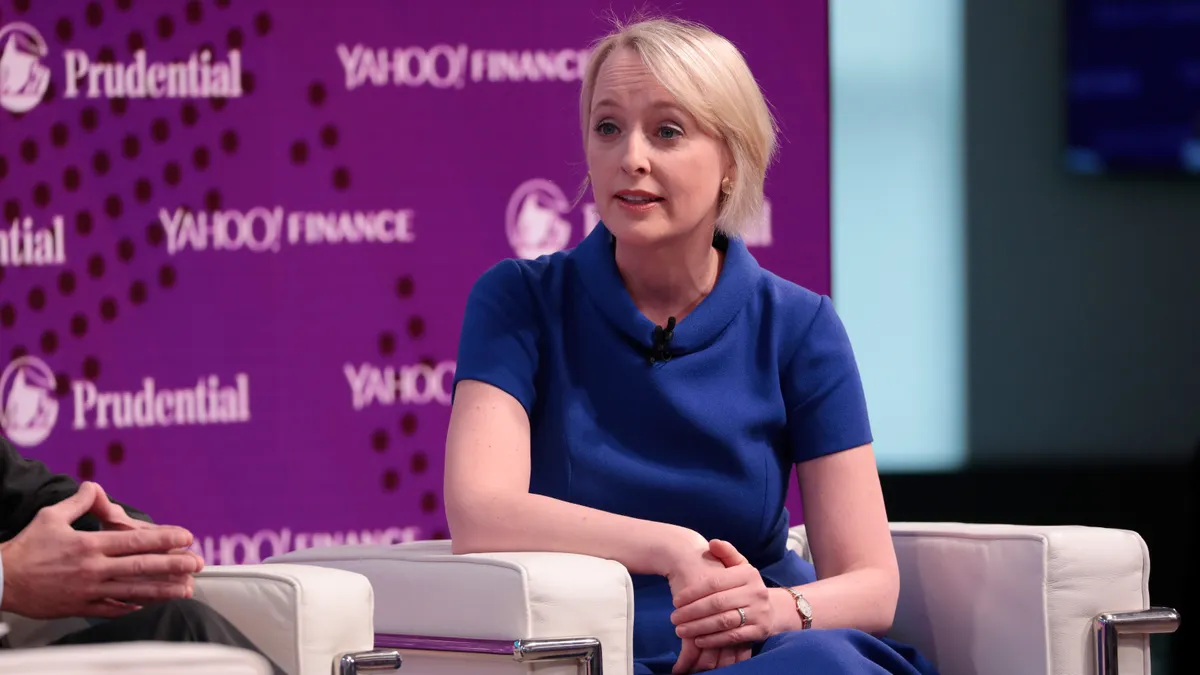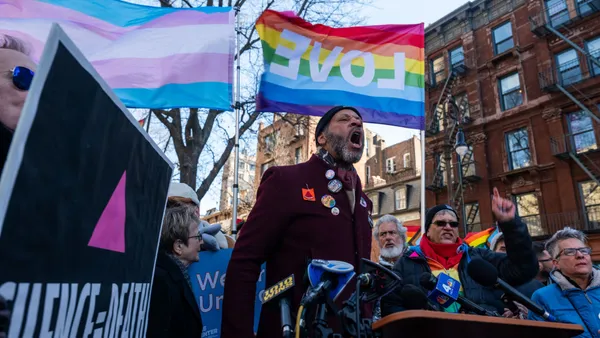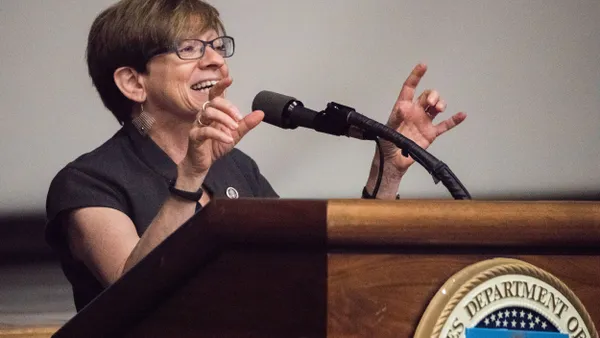Dive Brief:
- Global professional services firm Accenture announced last week it would sunset its global employee representation goals and other diversity, equity and inclusion programs to comply with President Donald Trump’s anti-DEI executive orders, according to an internal memo shared with ESG Dive.
- Accenture CEO Julie Sweet announced the program changes in an email to all employees on Feb. 6. In addition to scrapping representation goals, Sweet announced that the company will also cut career development programs for specific demographics and stop submitting to external diversity benchmarking surveys.
- Sweet’s email cites Trump’s executive orders targeting private sector DEI programs as the impetus for the changes. She said the changes — which will also entail Accenture no longer using its diversity goals to measure performance — are a result of the company’s “continued evaluation of [its] internal policies and practices and the evolving landscape in the United States.”
Dive Insight:
Immediately following his inauguration Jan. 20, Trump issued a number of executive orders aimed at rolling back his predecessor’s DEI policies and followed with the Jan. 21 order for agencies to target private sector programs. Accenture joins a growing number of companies that have altered or rolled back their corporate DEI initiatives in the new year, following a wave of rollbacks in 2024.
Sweet’s memo came a day after U.S. Attorney General Pam Bondi said the Department of Justice will “investigate, eliminate, and penalize illegal DEI and DEIA preferences, mandates, policies, programs, and activities in the private sector” and educational institutions. Accenture’s CEO told employees that in lieu of its representation goals, the company will put “a greater focus on inclusion and a sense of belonging for all.”
“We are and always have been a meritocracy,” Sweet told employees. “We are and always have been committed to an inclusive, merit-based workplace free from bias, and a culture in which all our people are respected, feel a sense of belonging and have equal opportunity.”
Accenture first rolled out employee representation goals in 2017, before updating them in 2020, according to Sweet’s memo. Among those was a goal to have a gender-balanced workforce by this year, according to an archived version of the company’s website. As of 2023, the most recently reported year, around 64% of Accenture’s workforce identified as men, while around 35% identified as women, according to the company’s workforce demographics.
Going forward, Accenture will make updates and continue to evaluate its company policies “to ensure they support [Accenture’s] business strategy, are effective, inclusive, fit the needs of all our people, comply with applicable laws globally, and address the continually evolving landscape,” Sweet said.
In ending its career development programs for specific demographics, Accenture will instead increase its investment in its “core career development programs.” While the company pauses its external diversity benchmarking submissions, it will also evaluate its continued participation, as well as its external partnerships.
Though the information technology services company will cease survey participation, Sweet said it will continue to report demographics publicly in markets it currently does. Additionally, she said Accenture will continue to support employee resource groups and its commitment to global pay equity.
“We have always believed that attracting, hiring and developing people who have different backgrounds, different perspectives and different experiences are essential to driving innovation and serving global companies across multiple industries,” Sweet said.
The memo’s focus on inclusion tracks closely with recommendations given by Chai Feldblum, a former Democratic commissioner for the U.S. Equal Employment Opportunity Commission, in a LinkedIn post last week. While Feldblum said Bondi’s order could create “trouble in the courts” if interpreted too broadly, she suggested companies could frame their programs as commitments to creating inclusive and fair workplaces that ensure no one is discriminated against.
Companies who have altered their DEI policies since the new year have stretched across industries and include McDonald’s, Meta, Amazon, Target and Google shifting away from diversity hiring goals, supplier diversity goals and more in the past two months. Many of the same companies have accompanied the sunsetting of certain DEI initiatives with a shift in emphasis to “inclusion.”















